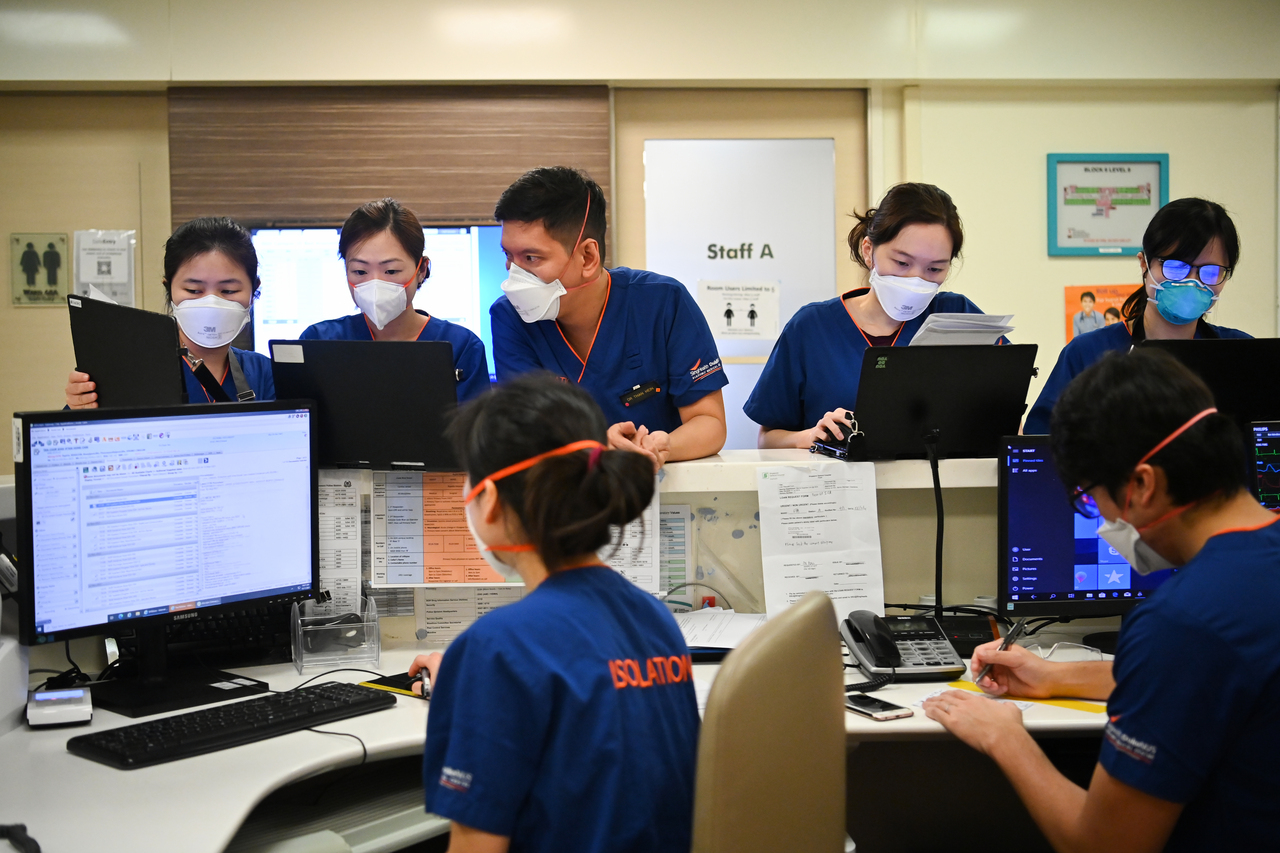Budget 2022: Healthcare spending to form bulk of increase in social expenditures by 2030
Sign up now: Get ST's newsletters delivered to your inbox

Increased healthcare spending cannot be avoided because the healthcare and social needs of an ageing population will inevitably rise.
ST PHOTO: LIM YAOHUI
Follow topic:
SINGAPORE - Healthcare will account for the bulk of increases in government social spending by 2030, as Singapore's population ages.
At the same time, there are economic and employment risks on the horizon that threaten to shrink the already declining pool of working adults.
These are among the issues that the Government will be focusing on as it gradually moves out of pandemic response mode, said Finance Minister Lawrence Wong in his Budget speech on Friday (Feb 18).
Singapore is one of the fastest-ageing nations in the world.
Those who are aged 65 and above formed 16 per cent of Singapore's population last year, up from 9 per cent in 2010.
By 2030, this will rise to one in four or 25 per cent of Singaporeans, just like Japan and some European countries today, Mr Wong noted.
This will shrink the pool of working adults here, even as economic and employment-related risks threaten to reduce it further.
Already, the country's spending on healthcare has tripled to $11.3 billion in 2019, from $3.7 billion in 2010.
"If our current healthcare spending, excluding Covid-19-related expenditure, continues to increase at a similar rate over the coming decade, we will spend about $27 billion or around 3.5 per cent of GDP (gross domestic product) by 2030," said Mr Wong.
Increased healthcare spending cannot be avoided because the healthcare and social needs of an ageing population will inevitably rise.
The problem is that the current rate of increase is not sustainable, he stressed.
Instead of battling the relentless surge in costly chronic health complications as the population ages, a better way is to make it easier for people to manage their own health to reduce these complications, he said.
Singaporeans can thus expect changes in the way healthcare is delivered, as the Government aims to centre care around the patient, Mr Wong said.
"A strong primary care sector will serve as the bedrock of our healthcare system," he said.
General practitioners (GPs) at private clinics or polyclinics will thus play a greater role in helping people manage their health conditions.
Health Minister Ong Ye Kung had said last week that a national programme focusing on preventive care will be launched to help rein in soaring healthcare costs and reduce the burden on patients' families.
In his speech, Mr Wong also said that a greater focus on preventive care will enable the hospitals here to focus on complex conditions and emergency cases.
To this end, healthcare clusters will work together with GPs and other community partners.
"We will also need to integrate our healthcare IT systems so that information can flow beyond hospitals to community healthcare providers, to enable quality care and maximise convenience to patients."
This is a long-term effort that will see changes in healthcare financing schemes and more investments in preventive healthcare, Mr Wong added.
Mental health, which has been brought to the fore during this pandemic, will not be left out.
"The pandemic has been a stressful period for Singaporeans," said Mr Wong. "But the issues of mental health that we face are not caused only by Covid-19."
These issues are clearly not going to go away with the pandemic. He said the Government has established a mental health task force to look into enhancing and integrating the mental health and social services in the community.
Mr Ong will elaborate on the plans and strategies at his ministry's upcoming budget debate.

